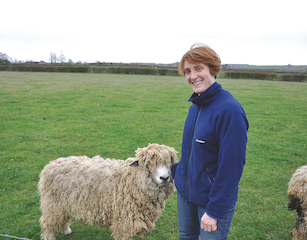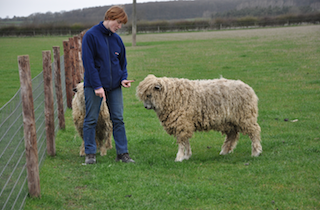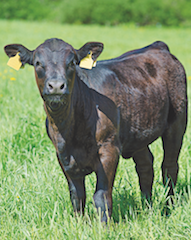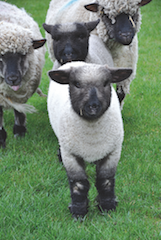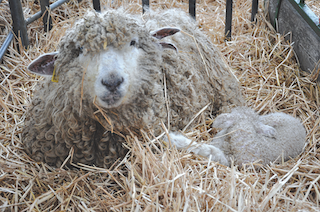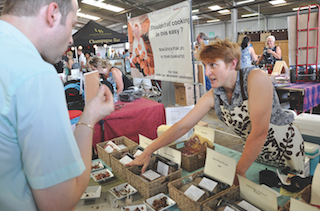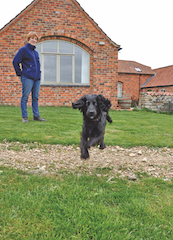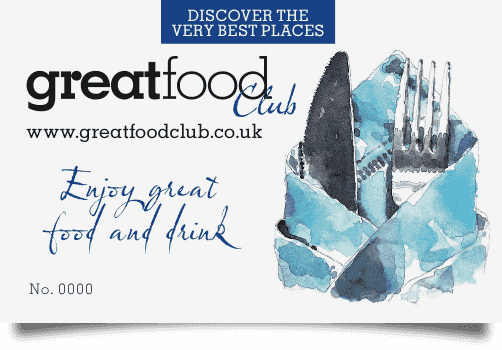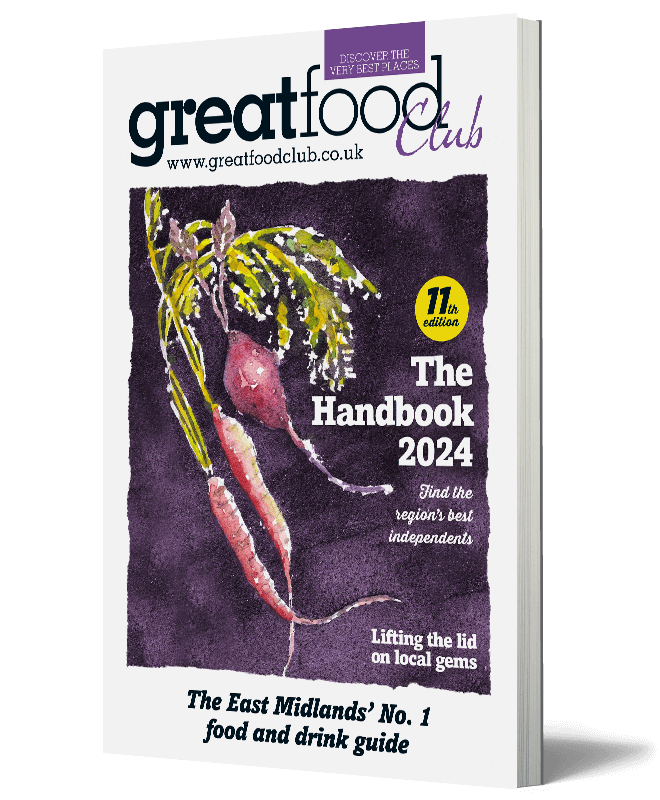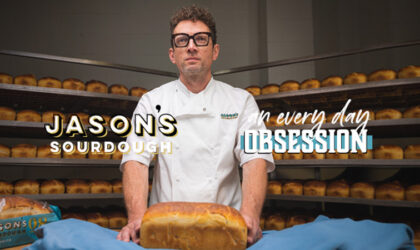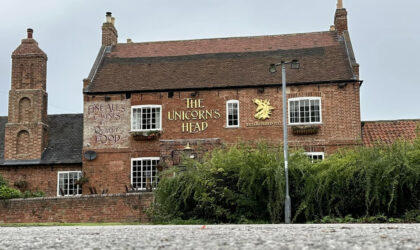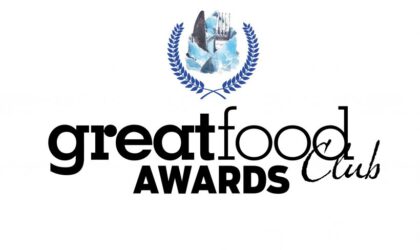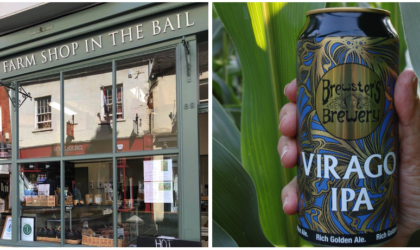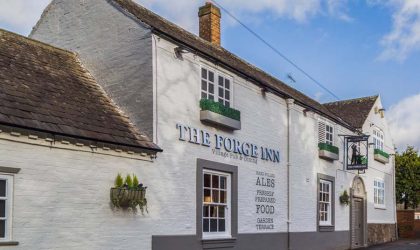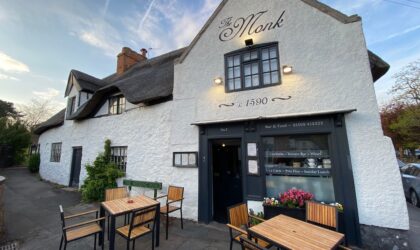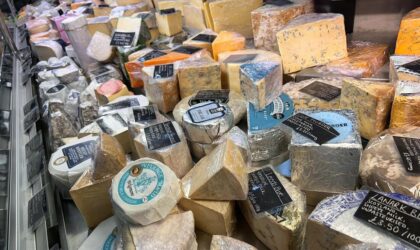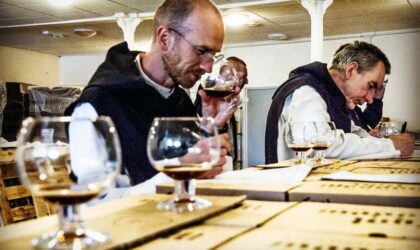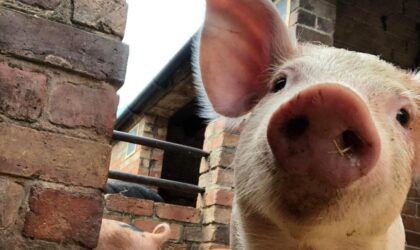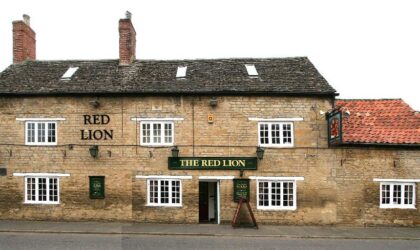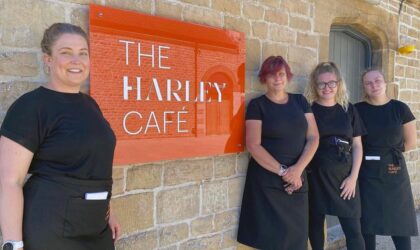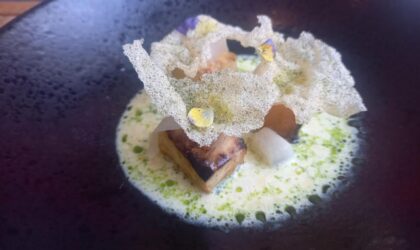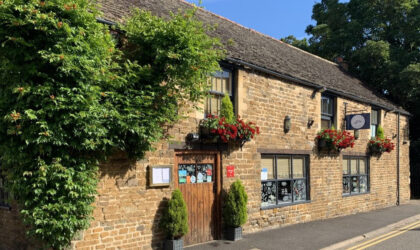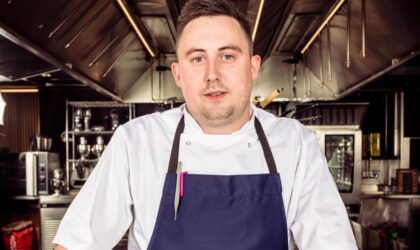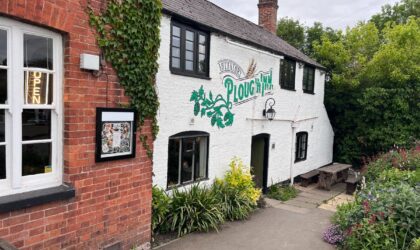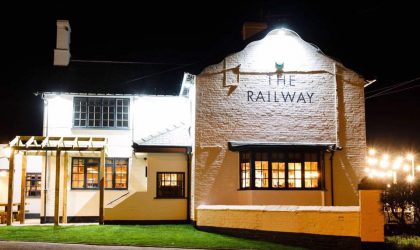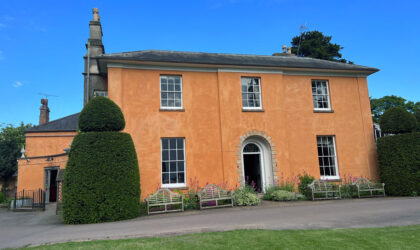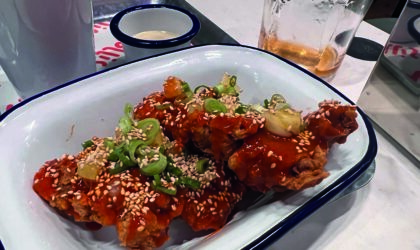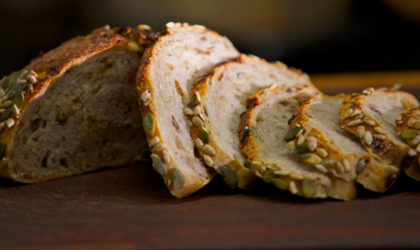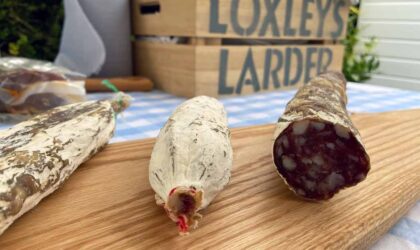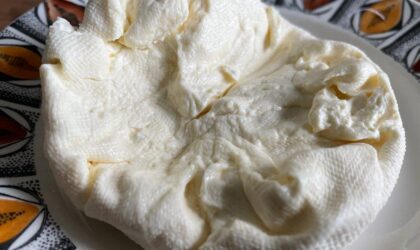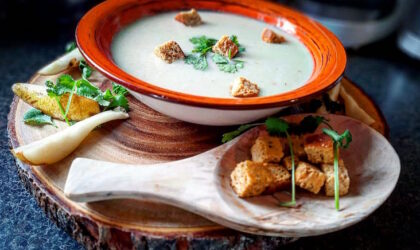Saltby Pasture: veal and mutton specialist
It is a very brave farmer who decides to specialise in producing two meats that, for very different reasons, are not popular foods in Great Britain. But Annie Wright, owner of a 25-acre smallholding in rural Leicestershire, has done just that – hand rearing and selling veal, hogget (old-season lamb) and mutton to farm shops, delis and restaurants around the East Midlands with great success.
Lincoln Longwools
“People associate the word mutton with meat from an old sheep that’s as tough as old boots, which you have to slow-cook for days,” she laughs. “Similarly, veal is not popular in this country because of the association with the way it is reared on the continent – a process which ensures the milky white, tender meat that the French demand.”
Annie with her Longwool rams
Both of these negative associations couldn’t be further from the beautiful meat that Annie now produces at her farm at Saltby Pasture near the village of Saltby, located midway between Melton Mowbray and Grantham.
She explains: “Our veal is free range and termed rosé – which means that the animal has been allowed free movement around our two-and-a-half acre paddocks or, in winter, around the barn.
“This free movement changes the meat so it is slightly beefier in flavour and pink in colour, but still has that wonderful delicateness.
“A lot of people in this country avoid veal because of the association with seeing calves in crates, which are fed a milk-only diet – but our veal calves are reared in a free range environment, which means we are still able to enjoy veal meat and at the same time know that the animal has been well cared for in its life.”
Choosing the best
Annie’s veal calves come from a local dairy, and she works with the dairyman to carefully select the animals that are the healthiest and have the best breeding.
“I look for a calf that has a good frame, has had good-quality colostrum (first milk) from mum and has had a normal calving – all of these things give the calf the best ability to resist disease,” she explains.
According to Annie, the perception of veal is changing fast but more people need to be eating it if the business is going to support the dairy farmers who otherwise have no use for the bull calves. “They are either shipped abroad for slaughter or culled shortly after birth,” Annie explains.
Saltby Pasture also raises Cumbrian Herdwick sheep
“A few of the very lucky ones are retained and bred for meat but my philosophy is that if we can create a market for rosé veal in this country then more dairy farmers will be able to sell their bull calves for veal and those calves will have a good life ahead of them,” she says.
Aside from veal, Annie also has a flock of Lincoln Longwool sheep – a rare breed suited perfectly to the Saltby terrain – which are bred for hogget and mutton.
“Having lived in Sussex as a child and known the problems of having a breed that doesn’t suit your area, the Lincoln Longwool was the obvious choice for us. It is a sheep native to Lincolnshire and known for its wool but more importantly for me, it is a docile creature that is very friendly and easy to handle,” she smiles.
“They have fabulous fleeces that we sell to the Wool Marketing Board once a year, and fabulous meat – but the breed is slow growing so is perfect for mutton and hogget. We have worked hard over the last two years to ensure that the finishing of the meat is the best it can be.
A Cumbrian Herdwick ewe with lamb
“Because the Lincoln Longwool is a rare and old fashioned breed, it is fattier than modern commercial sheep, which are bred to be lean. But the fat is really important – if you have older meat that doesn’t have much fat or marbling (the fat between the muscles), then it would be dry and tough.”
Unbeatable taste
Annie continues: “Our mutton has an amazing depth of flavour, which means the fillet can be pan-fried or you can roast a joint as you would a piece of lamb. It doesn’t have to be slow-cooked as most people perceive.”
Hogget is the term for old-season lamb that’s a year old and mutton can be anything from the age of two to five. Saltby Pasture mutton is produced after the animal’s third winter when the meat is at its peak in terms of flavour.
“It is delicious and I would best describe it as having a more mature but not a stronger flavour,” says Annie. “It loses the sweetness of lamb and we find that people who don’t like lamb, actually love mutton.”
The product ranges are going so well that Annie has now employed a local home economist, Gail Chapman, to help her develop a range of recipe cards to go with the different cuts as well as launching a range of specialist sausages, burgers and related products. Currently the most popular are veal and cheese burgers, and mutton koftas.
“We develop the ideas together, trialling different flavour combinations with each meat to find the ones
that perfectly complement each other,” explains Gail.
“Veal has a very delicate flavour and can be completely drowned out by strong herbs and spices, so we are very careful to test and develop as we go. For example, when coming up with the extremely popular veal and cheese burger, we tried all the Parmesans but it really only worked with Grana Padano – the other combinations like Parmigiano or Pecorino were just too acidic or too strong for the delicacy of the veal.”
Annie at the 2011 East Midlands Food Festival
Annie continues: “We are also very much aware of how the flavours develop over time, so if I sell some burgers on Saturday that may not be eaten until the Tuesday, it is very important to know that the flavours are still going to work together in the correct way.”
Annie’s philosophy is very much about giving people what they want and making the mutton and veal as user-friendly as possible, which she has worked out is absolutely crucial to their long-term survival.
Meat with provenance
“As somebody once said to me, you can educate people but you are not necessarily going to change how they cook or eat their food, which I think is very sensible advice,” says Annie. “At Saltby Pasture we are aware that expecting people to spend time preparing the meat for the pan simply isn’t practical – and it’s highly unlikely you’re ever going to be able to change that.
“I hope our product range is such that it will appeal to everyone – whatever their lifestyle – and will allow people to feed their family good quality British meat with great provenance,” she adds.
CONTACT
Saltby Pasture, Stonesby Road, Saltby, Melton Mowbray, LE14 4RF, www.saltbypasture.co.uk, 01664 430444
____________________

